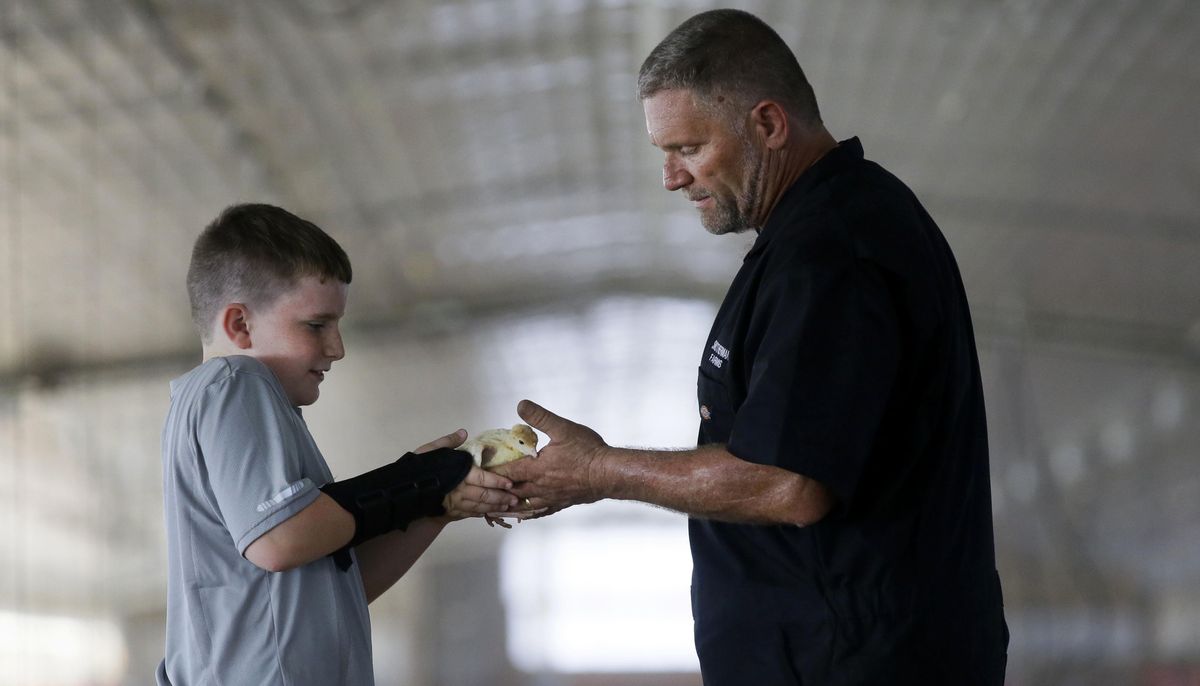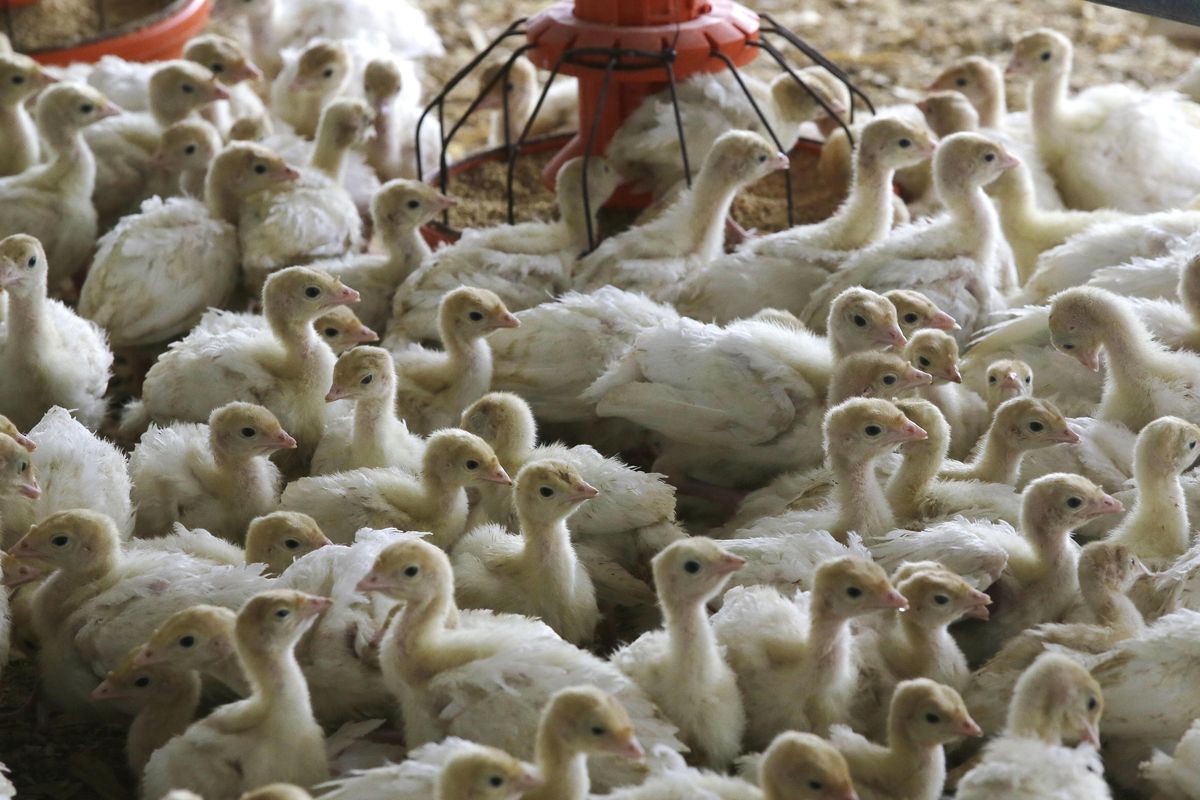Just in time for Thanksgiving dinner: traceable turkeys
Beau Smotherman, left, hands a baby turkey to his father Ken Smotherman in a poult barn at their family turkey farm near Waco, Texas. The farm is involved in a pilot project by Cargill’s Honeysuckle White brand that allows consumers to be able to find out where the turkeys they buy are raised. (Associated Press)
WICHITA, Kan. – Turkey farmer Darrell Glaser buys his Thanksgiving bird at the local grocery store, just like most folks.
But this Thanksgiving season, the Texas producer will be able to find out where the Honeysuckle White turkey he puts into his shopping cart was raised – and even know if it is one of the birds from his own Milam County farm.
Turkey buyers in select Texas markets will be able to either text or enter on the Honeysuckle White website the code found on the tag on the packaged bird to find out where it was raised and get information about the farm’s location, view farm photos and read the farmer’s message.
“What traceability does is just allow us to connect with the consumer,” Glaser said. “And I think over time there has been a disconnect. People have kind of lost where their food comes from and this is a way to re-establish that line of communication.”
Glaser is an independent farmer who raises about 600,000 birds a year for Cargill’s Honeysuckle White brand, and is among four Texas farmers participating in the market test. The traceable turkeys in the pilot project won’t cost more than untagged birds, and after the test, the Minneapolis-based Cargill Inc. and its Honeysuckle White brand will assess its effectiveness and value to determine further implementation of the digital technology and any price adjustments.
The pilot project marks the agribusiness giant’s entry into a burgeoning farm-to-table movement driven by people who want to know where their food comes from and how it was produced. It is also a sign of the success driven by sustainable food advocates who have been promoting such connections as a way for farmers to market locally grown and raised foods.
“When the big companies see that success, they are going to jump in and try to make money off it,” said Mary Fund, executive director of the Kansas Rural Center, an advocacy organization that promotes ecologically and socially responsible food systems.
Big agribusiness companies like Cargill and Tyson were instrumental in concentrating poultry production on farms and processing entities – eliminating the infrastructure that used to be there to support smaller local producers, Fund said. Now Cargill is in a sense “turning back to that model” by trying to tap into the desire that consumers have for an identifiable product.
“It is a tough thing because the local and regional food production and marketing system is not really able to satisfy the demand that is out there,” Fund said. “So we are not naive in thinking that you are going to be able to grow enough turkeys or poultry at a real local level and feed everybody.”
The conglomerate’s Honeysuckle White brand is the nation’s third-largest turkey producer, and is among the top five companies that collectively raise 65 percent of U.S. turkey production, said Simon Shane, an industry consultant and adjunct professor at North Carolina State University.
“Will it influence the rest of the industry? Only in respect to branded items, there is no point in doing it for generics,” Shane said. “But the industry is moving over to brands.”
The pilot project will inform the company as to the value of supply chain transparency to consumers and its impact on sales, said Deborah Socha, Honeysuckle Brand manager. Based on those findings, Cargill will develop its digital supply chain in the United States and globally.
Cargill’s turkey brand is its first within the company to experiment with blockchain technology, a transparent cloud-based system that allows multiple people to contribute, but not otherwise change, the supply chain record, said Deb Bauler, Cargill’s chief information officer. It is the same secure technology created for the digital currency bitcoin.
Honeysuckle White touts an internal 2014 study of turkey consumers which found 44 percent thought it was important for companies to be transparent, and a 2016 study from Nielsen Global Ingredients that found 73 percent of consumers feel positively about companies that are transparent about how its food products are made.
“Honeysuckle White has been listening to what the consumers have said and found that when it came to feeding their family, they really want to feel confident in knowing where and how the food is raised,” Socha said.

